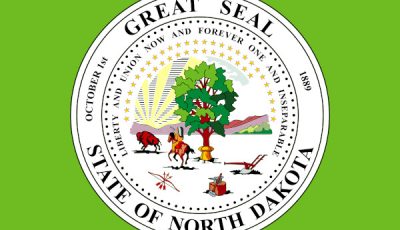Update: Status of Age Verification Laws in Utah, Louisiana and Arkansas
 State lawmakers across the United States are gaining traction and justification to mandate age verification laws as a means to supposedly protect children from the harms of the internet. Given the widespread belief that age verification should be a legal requirement for websites to operate, members of not only the adult entertainment industry but users of social media and technology, in general, are questioning whether a legally-mandated age-verified internet can be avoided, or at least contained.
State lawmakers across the United States are gaining traction and justification to mandate age verification laws as a means to supposedly protect children from the harms of the internet. Given the widespread belief that age verification should be a legal requirement for websites to operate, members of not only the adult entertainment industry but users of social media and technology, in general, are questioning whether a legally-mandated age-verified internet can be avoided, or at least contained.
Utah
Last week, senior management for Pornhub.com geo-blocked the entire state of Utah from accessing their sites. Of course, any savvy internet consumer can break this geo-block by downloading a VPN on their device to circumvent restrictions, but that is beside the point. A new law mandating age verification for all users who wish to access websites with adult content, including pornography, was signed quickly by Gov. Spencer Cox, a socially-conservative Mormon Republican, and became law on May 3. The bill, SB 287, was proposed by anti-porn legislators Sen. Todd Weiler and Rep. Susan Pulsipher, also socially-conservative Republicans. Pulsipher also was a sponsor of the controversial law requiring all mobile device manufacturers to have pre-enabled adult content filters at the point of sale across Utah.
SB 287 passed through a Republican super-majority with relative ease, bringing it to a level where even the age verification law in Louisiana, which entered into force on Jan. 1, is relatively mild but by comparison. Utah has developed a regulatory and law enforcement environment that penalizes consenting adults by giving them hoops to jump through to access content that most minors have no interest in until mid-to-late puberty. In response, Pornhub made the decision as an international business to completely pull out of a jurisdiction that is biased towards an otherwise legal and regulated industry. It shouldn’t be surprising.
This same legislative session saw the passage of SB 152 and House Bill (HB) 311. SB 152 was championed by Sen. Mike McKell, another Republican who happens to be the brother-in-law of Gov. Cox. This bill requires social media platforms to verify that the age of users in the state is 18 years or older to open a new account for themselves or for their children. HB 311, proposed by fellow Republican Rep. Jordan Teuscher, would prohibit social media companies from optimizing user experiences through algorithms, driven by the belief that such algorithms are encouraging social media “addiction.”
Louisiana
On Jan. 1, Louisiana became the first state in the country to mandate age verification in order to access porn websites. In the Louisiana bill, individuals who wish to view a porn site must now verify their age and identity by submitting a scan of an ID card. Platforms that don’t follow the new law could be subject to liability for exposing minors to adult content. The law creates a cause for civil action to encourage the parents of minors who have suffered “corrosive” damage from viewing porn to sue for damages sites that don’t have age verification measures in place.
Arkansas
Arkansas became the second state in the country to mandate age verification by social media platforms in order to serve users in the state. Republican Gov. Sarah Huckabee Sanders, who previously served as former President Donald Trump’s press secretary, has signed into law the “Social Media Safety Act”, which requires companies to obtain parental consent before issuing new accounts to users under the age of 18. Senate Bill 66 would levy damages against adult websites that do not enforce government-mandated ID checks like in Louisiana. Under the bill, the percentage of adult content on a platform that triggers the need to implement ID checks is 23% or greater. The threshold is 33% in the Louisiana law.
Scrabble tile image by CQF-Avocat from Pexels












